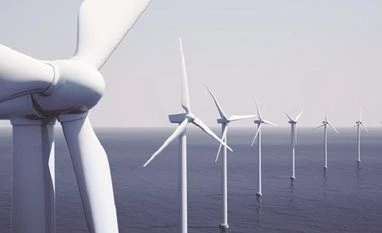India's subsidies for renewable energy, electric vehicles doubled in FY 22
A new study by International Institute for Sustainable Development (IISD), however, said it will be critical for govt carry on the momentum in coming years
)
India's subsidies for renewable energy and electric vehicles more than doubled in FY 2022, but it will be critical for the government to build this momentum over the coming years to reach the country's climate targets, a new study by the International Institute for Sustainable Development (IISD) said on Tuesday.
The study, titled Mapping India's Energy Policy 2022 (Update): Tracking Government Support for Energy, found that subsidies for renewable energy reached Rs 11,529 crore in FY 2022, up from Rs 5,774 crore in FY 2021, while support for electric vehicles in the same period jumped 160 per cent from Rs 906 crore to a record-high Rs 2,358 crore.
This rise is the result of greater policy stability, a 155 per cent jump in the installation of solar photovoltaic, and the post-Covid economic resurgence, the study found.
Yet, to confirm this trend, the government needs to further enhance the support measures, including subsidies, public finance, and investments by publicly owned companies, over the next few years to reach 500 GW of non-fossil capacity by 2030 and become net-zero by 2070, experts warned.
That is because in FY 2022, India still allocated four times more support to fossil fuels than clean energy, although the gap narrowed significantly since FY 2021 when support was nine times greater.
Also Read
"Continued support for fossil fuels is out of step with India's long-term objectives of energy access, energy security, and addressing climate change," said co-author of the study Swasti Raizada, Policy Advisor at IISD.
"Aligning government's support with its climate targets will require shifting support from fossil fuels to clean energy, including developing a clear investment plan and interim targets to reach its long-term goal of net-zero by 2070."
Subsidies for coal, fossil gas, and oil totalled Rs 60,316 crore in FY 2022, having fallen by 76 per cent since FY 2014 in real terms, the study found. Most notably, oil and gas subsidies fell by 28 per cent to Rs 44,383 crore in FY 2022, but this does not include foregone revenue from cuts in excise and VAT on diesel and petrol.
Overall, India provided at least Rs 5 lakh crore to support the energy sector in FY 2022, including over Rs 2.2 lakh crore in the form of subsidies.
While fossil fuels yielded important financial returns for the government, with energy accounting for nearly a fifth (19 per cent) of all government revenue in FY 2022 at Rs 9 lakh crore, IISD experts found that the social costs of energy were at least four times higher than government revenue.
Fossil fuel use costs Indians between Rs 14 lakh crore and Rs 35 lakh crore in social costs, such as from air pollution and climate change, with the range reflecting uncertainty about the extent and cost of impacts, the report found.
"The government has the perfect opportunity to use these massive energy revenues strategically to help people and businesses transition to clean energy. In the long run, this will not only reduce the social costs of fossil fuels but shape a cleaner and more affordable energy system in India," Raizada added.
--IANS
vg/ksk/
(Only the headline and picture of this report may have been reworked by the Business Standard staff; the rest of the content is auto-generated from a syndicated feed.)
More From This Section
Don't miss the most important news and views of the day. Get them on our Telegram channel
First Published: Dec 20 2022 | 5:29 PM IST
